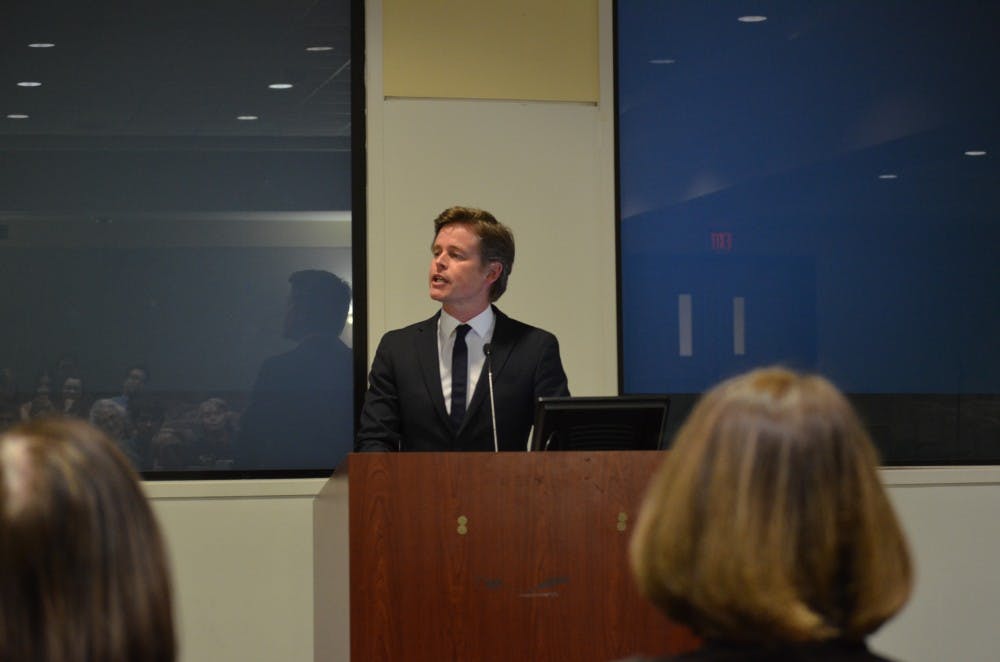President John F. Kennedy delivered four important speeches to audience members at AU on March 8 – almost. Instead, attendees got the next best thing, actor Caspar Phillipson, who recently portrayed Kennedy in the film “Jackie.”
Phillipson brought several Kennedy speeches to life at an event hosted by KPU and the Center for Congressional and Presidential Studies. Anders Agner Pedersen, a Kennedy novelist and editor-in-chief of Kongressen.com, explained the context of each Kennedy portrayal.
The event showcased Kennedy’s inaugural address, his 1963 American University speech, an anti-communist rally at the Berlin Wall and the Dallas, Texas speech that he never gave due to his assassination.
Before the first speech, Pederson said, “one of the key issues about Kennedy’s presidency is that he understood how powerful speeches can be if delivered rightly even though they’re not if they’re not necessarily always backed up with action.”
Philipson’s first speech took audience members back to 1961. Kennedy was delivering his inauguration speech after he beat presidential candidate Richard Nixon by a margin of .17 percent, Anders said.
Pedersen said that President-elect Kennedy worked with his speechwriter Ted Sorensen for two months to create a short speech that focused on foreign policy.
With that, Phillipson took the podium as America’s 35th president, recreating JFK’s speeches. The Cold War-era speech reminded Americans of the threat of nuclear war, but also inspired hope for the future.
“Man holds in his mortal hands, the power to abolish all forms of human poverty and human life,” Phillipson said as Kennedy, telling Americans that the time had come to stand up for freedom.
Phillipson also re-enacted the famous line, “Ask not what your country can do for you. Ask what you can do for your country.”
The next speech was delivered at the Berlin Wall in West Germany in June of 1963. It was only a year prior in October 1962, when the world was on the brink of nuclear war during the Cuban Missile Crisis. Kennedy needed a venue to reach out to the Soviet Union and he decided on American University.
Pedersen confirmed with multiple Kennedy confidents that the speech at AU was the one Kennedy spent the most time “research and preparing.” This was because the message was extremely critical in what Pedersen called the most important Kennedy speech ever.
“Only a few minutes walk from where we are now,” said Pedersen, “President Kennedy gave the speech which the man who wrote his speeches considered to be the best one he ever gave.”
In the speech, Phillipson portrayed Kennedy describing AU as a “young and growing university,” and commended the history and public affairs programs.
Kennedy’s speech warned Americans about nuclear weapons and stressed that growing the nuclear stockpile was essential to deter war.
After giving the Berlin Wall speech, Philipson gave a speech written for Kennedy which he never delivered. According to Pedersen, this was the speech Kennedy was supposed to deliver to the Dallas Citizens Council, but did not because he was assassinated. The larger theme of this speech was peace on Earth.
In a question and answer session after the speeches Philipson was asked about how he learned to speak like President Kennedy.
“In order to learn his pattern of speech I realized how amazing his speeches are and how they speak to me today and how I’m sure they speak to all of us,” he said.





